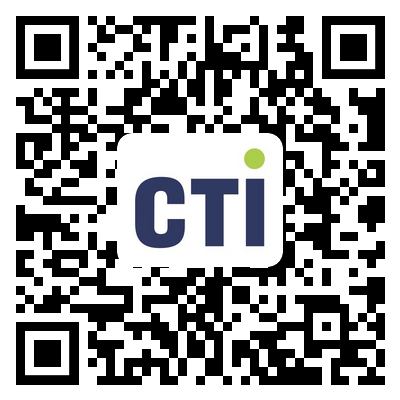-
 Overview
Overview
Centre Testing International Group Co., Ltd. (CTI) is a market leader in testing, inspection, certification, calibration, audit, training & technical services; building trust between governments, enterprises, and consumers.
-
 Sustainability
Sustainability
By building a full value chain ESG governance system covering the strategic decision-making level, management execution level and business operation level, it actively practices penetrating management of ESG risk and opportunities, empowering sustainable development across the industry chain.
-
 Our service
Our serviceCentre Testing International Co., Ltd. (CTI) is the pioneer and leader in the TIC Industry which provides one-stop solutions on testing, inspection, certification, calibration, audit, training & technical services.
-
By Industry
Our service capabilties cover the upstream and downstream of the supply chain including textile and apparel,toys,electronic appliances,medical health,food...andother industries.
-
 Environment
Environment
-
 Raw Material & Fuel Chemicals
Raw Material & Fuel Chemicals
-
 Textiles, Apparel, Footwear & Accessories
Textiles, Apparel, Footwear & Accessories
-
 Food & Agricultural Products
Food & Agricultural Products
-
 Cosmetics, Personal Care & Household Chemicals
Cosmetics, Personal Care & Household Chemicals
-
 Building Materials&Construction Engineering
Building Materials&Construction Engineering
-
 Electronic & Electrical Appliances
Electronic & Electrical Appliances
-
 Toys, Furniture & Home Decoration
Toys, Furniture & Home Decoration
-
 Industrial Equipment & Manufacturing
Industrial Equipment & Manufacturing
-
 Rail & Aviation
Rail & Aviation
-
 Automotive & Spare Parts
Automotive & Spare Parts
-
 Pharma and Medical Services
Pharma and Medical Services
-
 Maritime Vessel Compliance Testing
Maritime Vessel Compliance Testing
 By Industry
By IndustryOur service capabilties cover the upstream and downstream of the supply chain including textile and apparel,toys,electronic appliances,medical health,food...andother industries.
-
-
 Specialty
SpecialtyComprehensively guarantee quality and safety, promote compliance and innovation, demonstrate brand competitiveness, and achieve higher quality, healthier, safer, and greener sustainable development.
-
 Management
ManagementWe have established a clear governance structure in accordance with listing requirements and national regulations and policies to deal with internal and external challenges and achieve sustainable development.
-
 Information DisclosureWe are committed to establishing normal and effective two-way communication with shareholders and investors. We have established a complete information disclosure mechanism to convey information to shareholders in a timely manner.
Information DisclosureWe are committed to establishing normal and effective two-way communication with shareholders and investors. We have established a complete information disclosure mechanism to convey information to shareholders in a timely manner.
-
 Talents Policy
Talents PolicyEnsuring the basic rights and benefits of employees;
Providing professional skills training to promote employees’ growth;
Carrying out various kinds of activities to balance employees’ work and life.
-
 RecruitmentWelcome to join CTI family! We are providing a platform for you to show your talents and achieve your career aspiration.
RecruitmentWelcome to join CTI family! We are providing a platform for you to show your talents and achieve your career aspiration.
CTI Certification has professional Accredited Assessors with significant experience in performing the assessment.

◉ Service Background
The Hydropower Sustainability Standard, (HS Standard) governed by the Hydropower Sustainability Council, is an assessment and certification framework that ensures accountability and assurance in hydropower sector.
It charts a path for harnessing hydropower's potential to drive positive impact, benefiting communities and our environment. The HS Standard covers 12 environmental, social, and governance (ESG) topics over two levels of performance: good practice (minimum requirements) and best practice (advanced requirements), and is aligned with green finance initiatives such as the Climate Bonds Initiative's Hydropower Criteria.
CTI Certification has professional Accredited Assessors with significant experience in performing the assessment.
◉ Hydropower Project Eligibility
Projects that are eligible to be assessed and certified against the HS Standard include:
• Run-of-river hydropower
• Storage hydropower
• Pumped storage hydropower
• Multipurpose dams with a hydroelectrical component
Only individual projects, new and existing, are eligible for assessment and certification against the HS Standard. There are no eligibility restrictions on size, age or location. Multipurpose dams can be assessed against the HS Standard if they have a hydroelectrical component.
Should the development of the Project require the developing of associated facilities, these are included within the scope of the HS Assessment.
◉ Benefits of Implementing the Standard
Enhanced reputation: Gain recognition as a leader in sustainable hydropower, bolstering credibility and attracting stakeholders.
Environmental safeguards: Reduce ecological impact and safeguard natural resources.
Access to funding: Align with international standards to attract financing from investors and multilateral organizations.
Risk mitigation: Address potential environmental, social, and governance risks early, minimize project disruptions.
◉ Certification Process
Assessment: Accredited Assessors collect evidence and provide an unbiased evaluation of the project's sustainability performance according to the requirements of the Standard.
Publication and Finalization: The Secretariat reviews whether the assessment process and report align with all certification processes. If the assessment report is accepted, it will be published on the website.
Application: After publication, the Project Proponent submits an application to the Secretariat for certification and pays the application fee.
Certification: The Governance Committee certifies the project. If the project meets the requirements, the Secretariat will issue the certification.
Re-certification: The duration of certification for ratings is five years. After the end of the certification period, the project needs to undergo a re-certification following the same process.
◉ Certification Status
A project's certification status is determined based on the outcome of the assessment. There are three categories of certification status: certified, certified silver, and certified gold. An important principle in the design of the certification scheme is to incentivise and reward improving practice; hence higher tiers of certification status (Silver or Gold) are recognised for projects that meet advanced requirements, depending on the total number of advanced requirements met. The total number of advanced requirements met are summed per topic and converted into a percentage.
• Certified
Projects have undergone an independent assessment and have met the minimum requirements of the Standard, and have received a total advanced requirement score below 30.
• Certified Silver
Projects have undergone an independent assessment and have met the minimum requirements of the Standard, and meet a minimum of 30% of the advanced requirements on each relevant topic.
• Certified Gold
Projects have undergone an independent assessment, have met the minimum requirements of the HS Standard and meet a minimum of 60% of the advanced requirements on each relevant topic.
A project must meet all minimum performance requirements of the HS Standard on all relevant topics to achieve HS Certified label.
You may also contact us for further information.




































 粤公网安备 44030602000441号
粤公网安备 44030602000441号